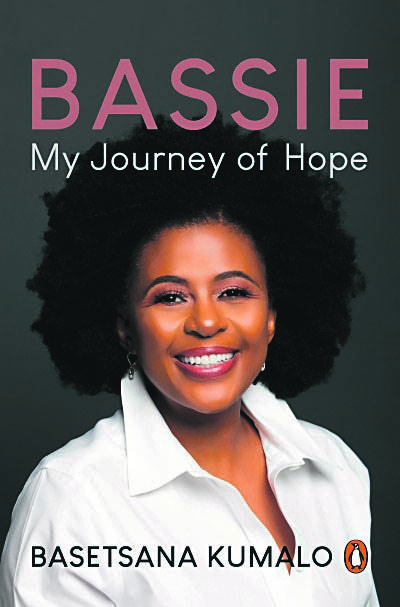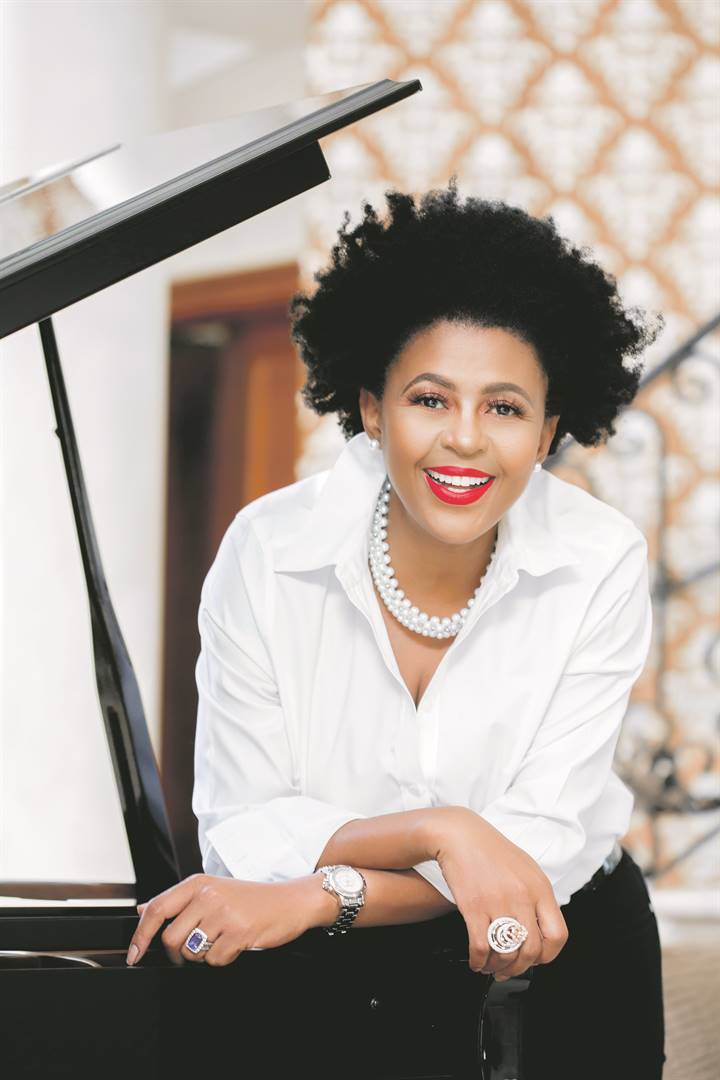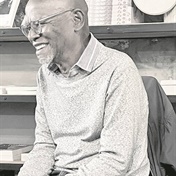
From the evolution of hair to a cosmetics range, former Miss South Africa and business mogul Basetsana Kumalo reveals what it took to build her professional brand, in this extract from her new book.
If you drove into Soweto from Potchefstroom Road, entering at the Chris Hani Baragwanath Hospital side in the late 1990s, you would have seen a massive billboard featuring me in a flowing red dress, a scarf and a big smile, advertising the Revlon Realistic range of hair relaxers.
The tagline: “I wanted to dazzle the world and my hairdresser said relax.” The product was being rebranded and relaunched with a bang, and I was the face of it. To be asked to do a Revlon endorsement was a real honour – I mean, Halle Berry was the face of Revlon! The most beautiful women in the world were connected to the brand.
It’s quite an experience seeing your own face plastered all around the township and across the city. That image was in all the women’s magazines of the day too: Bona, Pace, Thandi, True Love. Some of them no longer exist, but at the time they were a big deal, those magazines.
It’s funny to think back on that time, because things have come full circle for me in terms of hair. Four or five years ago I decided to “own my roots”, quite literally. I stopped relaxing my hair, cut off the relaxed part and grew out my natural Afro.
Black women’s hair is a political issue, and when you wear dreads, or an Afro, for that matter, it is seen as a sign of rebellion for some reason. But I decided that it was time to join the changing narrative around black beauty and to set an example for young women so that they could be part of it too. The year 2016 saw a major student protest when staff at the Pretoria High School for Girls in South Africa’s administrative capital began telling black students to “fix” their hair. Some had even been told to use chemical straighteners. I was rather proud to see 15-year-old schoolkids standing up for themselves and owning their roots. Thirteen-year-old Zulaikha Patel led the charge.
Those are the daughters we want to raise, young women who stand up for themselves and others. Schools should not be used as platforms to discourage students from embracing their African identity.
When I was young and getting started in the beauty pageant world, the beauty industry espoused slick and smooth hair. The standard for beautiful hair was long, silky, Caucasian-looking hair, and the absolute ideal was to be able to flick your hair. You could wear it pulled up in a bun or in a ponytail, but there was no way you could enter a beauty pageant with an Afro in those days. You would stand zero chance of winning the title. So black women relaxed their hair to get it as smooth as possible.
Thus, in my beauty pageant days, and for most of my life, I relaxed my hair. But the process was far from relaxing! Those relaxers would burn your scalp.
The fact is that they work by permanently breaking down the protein bonds within the hair to loosen its curl. The chemical process was torturous, to say the least. You would sit in the stylist’s chair while your hair was being treated, and your scalp would be on fire!
If they left the relaxer on for too long, you would actually have scabs on your scalp from the chemical burns. And for what? Some people actually believe that “beauty is pain”, but that doesn’t have to be the only narrative for African hair. It is one part of our identity that we have to reclaim and reframe.
Before the advent of colonialism, Africans embraced their looks because there was no external force demanding that they alter themselves in order to be beautiful. Village women would spend hours grooming one another’s hair, and this kind of communal self-care was passed on from mother to daughter for generations.
Our hair remains important as an expression of individual identity. Everywhere you go in Africa, you will find a hair salon. It might be located in a dilapidated shack or on a street corner, or – like you find in the township – in your neighbour’s garage.
There will be a lady there who knows how to do the best cornrows and a guy who is an artist when it comes to men’s haircuts. These spaces are a part of who we are.
Recently, the conversation about hair has moved onto the big screens of Hollywood, where a new crop of black actors and actresses have made the decision to commit to their natural hair. Women such as Lupita Nyong’o, Danai Gurira, Letitia Wright and the amazing Viola Davis are using their platforms to tell the world that we are beautiful just the way we are.
While the politics of hair remains contentious, at least our kids can now see people who look like them in the media. Since having Bontle, I have realised that raising a daughter who embraces her true self is a deliberate act of acceptance of who you are as her mother. It is important to encourage her to see herself as the ideal standard of beauty just the way she is, not as someone who needs to be “corrected” or changed in order to be acceptable.
Today, when I plait my little girl’s hair and see how beautifully her Afro is growing, it makes me so proud. It’s good to know that she will grow up and look at herself in the mirror and see that she’s completely perfect the way she is. Later, if she decides to grow her hair into dreads, or wants to relax her hair, that’s her decision.
There is nothing wrong with how a woman chooses to wear her hair. But for now, while Bontle is under my roof, we’ve decided to go back to our roots, to own them and to fix each other’s beautiful crowns!
So, thankfully, attitudes are changing around hair, and I am pleased to be a part of that change. But at the time, endorsing such a big brand was a turning point in my career. I still remember the actual shoot. My word, there must have been 20 people on set. I knew that something had happened in my life. I was not only a former Miss South Africa any more – I had grown into a national brand.
I began to see that I had potential longevity in this space as a public figure, well beyond the 12 months of my reign.
Because my full name, Basetsana Makgalemele, was a bit of a mouthful for some, a lot of people had taken to calling me Bassie for short. I didn’t mind it. I was increasingly using this shorter version of my name. It had a good ring to it and worked well as a “brand name”. Being asked to endorse Revlon was amazing, and I think that also got me thinking about how I could expand the Bassie brand into other areas.
The early 2000s were significant in terms of building my brand. They were pioneering years for me as an entrepreneur. My own cosmetics range was an obvious next step. Patience [Stevens] and I partnered with three gentlemen, Sam Alexander, Barry Chrystal and Ian Stern, to create a cosmetics line called Bassie Cosmetics. It was a beautiful range, with good quality coloured palettes, and beautifully packaged. We had everything, from foundations, eyeshadow and blush to volumax mascara, lipstick, eyeliner, lipliner and moisturising lip gloss.
The range was extensive and came with a training manual, which was used by make-up artists and consumers alike. We distributed through the big retailers: Pick n Pay, Checkers, Clicks and so on. The range did well and I saw that the Bassie brand had potential for growth.
I started to think about other areas I could expand into.
So, next I partnered with Torga Optical and we created a whole range of eyewear as well as an optical range, which was distributed through their outlets around the country.
Torga had a big national footprint, and our range was advertised via TV commercials, a print marketing campaign and on radio.
It did very well and was successful for about 10 years. Later on I partnered with Spec-Savers to create the Bassie Sunglass Collection, which also enjoyed a good run.




 Publications
Publications
 Partners
Partners









